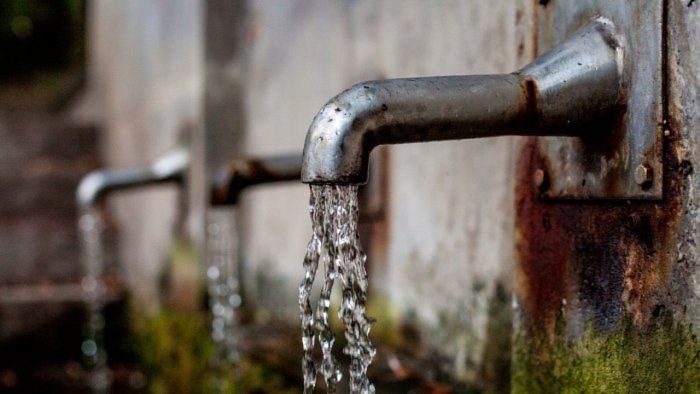
Home to 18 per cent of the world’s population with only 4 per cent of its water resources, India has been termed by the World Bank as one of the most water-stressed countries. The predictions of a dry, searing summer place in context a new social innovation challenge that has entrepreneurs propose deep-tech and AI-powered solutions to tackle water management and distribution issues.
Seven startups, including three from Bengaluru, have been identified from a pool of 140 applicants under The/Nudge Prize Ashirvad Water Challenge. Designed as a collaboration of social and private sectors to complement the Union Government’s initiatives in addressing water stress, the Rs-2.5 crore prize challenge is supported by the Office of the Principal Scientific Advisor (PSA) to the Government of India, and Ashirvad Pipes.
When Jal Jeevan Mission -- envisioned to provide tap water to every rural household by 2024 -- was launched in August 2019, the access coverage was 16.72 per cent. The Union Ministry of Water Resources estimated the coverage, as in January this year, to be at 56.84 per cent.
Sudha Srinivasan, CEO, The/Nudge Centre for Social Innovation, said the coverage could touch 70-80 per cent but there are challenges in meeting the last 15-20 per cent. “That is where we hit structural walls and barriers; for instance, the supply of piped drinking water in difficult terrains, in areas with high population density where it is important to monitor and prevent leakages and ensure that the supply is greater than the demand. This is an innovation challenge you cannot address through your known solutions,” she told DH.
Shortlisted solutions
Aumsat Technologies, Mumbai, and Smartterra, Bengaluru, are developing systems that predict leakages and reduce water losses. i47 Innovation Labs, Bengaluru, is developing a water-metering and saving solution. Solinas Integrity, an IIT-Madras deep-tech startup, addresses leaks and wastage through robotic solutions. Ossus Biorenewables, Bengaluru, works on a bio-electrochemical process to desalinate seawater. VAS Bros Enterprises, Ranchi, has come up with a nature-based water purification solution while Urdhvam Environmental Technologies, Pune, is developing technologies that increase groundwater sustainability.
The PSA’s office has helped with outreach for the programme, through networks of universities and scientific institutions, and connected the contestants to the experts. Sudha said internationally renowned water expert Prof Asit K. Biswas guided the programme team and the contestants. The jury comprises members from organisations including Jal Jeevan Mission, Arghyam, Water Aid, IHE Delft Institute for Water Education, the Netherlands, BITS Pilani, IIT Kanpur and IIT Jodhpur.
Sudha underlined the need to make developmental challenges more attractive to the innovators. “Areas like poverty alleviation have attracted charitable activities and people with empathy but innovators have gravitated towards more lucrative problems. With these challenges, we hope to establish that developmental challenges also need problem-solvers, tech-first thinkers and innovators, not just do-gooders,” she said.